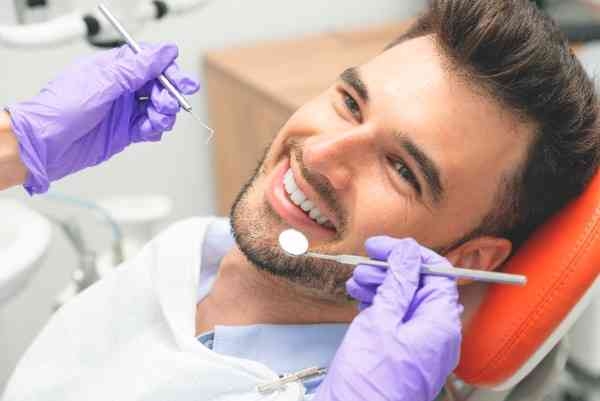When is It Really a Dental Emergency in Bexhill?

Dental issues can strike without warning, but not every ache or chip means a late-night trip to the clinic. So how do you tell the difference between a true emergency and something that can wait? Acting quickly when it really matters can save your teeth—and your health. This guide helps you spot the signs that need urgent attention and gives practical tips on what to do next.
What Qualifies as a Dental Emergency?
Not every dental issue needs immediate attention, but some symptoms signal a serious problem that shouldn't wait. An emergency dentist in Bexhill is trained to handle these cases quickly and effectively.

Common Situations That Count as Emergencies:
- Pain that won’t go away: If over-the-counter painkillers barely make a dent, it's more than just a niggle.
- Bleeding that won’t stop: Especially after trauma or dental surgery.
- Swelling in the face or jaw: Can be linked to infections that may spread.
- Cracked, chipped, or knocked-out teeth: Needs fast handling to save the tooth.
- Signs of infection: Pus, a bad taste in the mouth, or a high fever.
According to the Oral Health Foundation, around one in four UK adults avoid regular check-ups, which increases the risk of emergencies developing without warning.
Severe Toothache: More Than Just a Nuisance
Toothache can feel like a minor annoyance—until it escalates into something that keeps you awake at night.
Orthodontist Bexhill professionals often see cases where untreated decay or orthodontic appliance issues lead to persistent pain. If the pain doesn’t improve with ibuprofen or paracetamol and interferes with eating or sleeping, it’s time to seek help.
Ignoring pain may lead to:
- Abscesses
Dental abscesses are pockets of pus caused by bacterial infections in the tooth or gums. They’re often extremely painful and may cause swelling, fever, or a bad taste in the mouth. Left untreated, an abscess can spread to other parts of the body, including the jaw or even bloodstream. Prompt care from an emergency dentist is crucial to drain the infection and prevent serious complications. - Nerve damage
Untreated decay, trauma, or prolonged grinding can expose or damage the tooth’s nerve. This often leads to sharp or persistent pain, especially when eating hot or cold foods. If the nerve is compromised, root canal treatment might be required. Delaying care can increase the risk of permanent damage or tooth loss. - Worsening infection
Oral infections can spread quickly, especially in cases involving abscesses, gum disease, or wisdom teeth issues. Signs include increased swelling, redness, difficulty swallowing, or fever. Without early intervention, these infections may extend to the face, neck, or bloodstream, becoming life-threatening. Seeking urgent help prevents complications and protects your health.
Tip: Pain that lingers longer than two days, especially if it’s sharp or throbbing, should be treated as urgent.
Swelling or Bleeding That Doesn’t Stop
Swelling in the gums, cheek, or jaw isn’t just uncomfortable—it can be dangerous. It may be a sign of infection like cellulitis, which can spread quickly to other areas.
When swelling affects your ability to breathe, speak, or swallow, this becomes a medical emergency.
Likewise, bleeding that lasts beyond 15–20 minutes after applying firm pressure needs immediate assessment by an emergency dentist in Bexhill. This might be due to:
- Gum trauma
Accidental bites, aggressive brushing, or injury during sports can lead to gum trauma. This may result in pain, bleeding, and inflammation, sometimes masking more serious issues like fractures or exposed roots. If bleeding persists or the area becomes swollen or infected, it’s important to seek help from an emergency dentist to avoid complications. - Post-extraction complications
While tooth extractions usually heal without issue, some patients experience problems like dry socket, prolonged bleeding, or infection. These can cause severe pain, bad breath, or a foul taste in the mouth. If symptoms don’t improve after a couple of days or worsen, professional care is necessary to manage the healing process safely. - Underlying clotting disorders
Individuals with conditions like haemophilia or those on blood thinners may experience excessive or uncontrolled oral bleeding. After a dental injury or procedure, their risk of complications increases. It's crucial to inform the dentist beforehand and to seek immediate attention if bleeding doesn’t stop after 15–20 minutes of pressure, as this could indicate a serious clotting issue.
If you're wearing braces or aligners, certain movements can irritate soft tissue and trigger unexpected bleeding or swelling. Regular visits to your orthodontist Bexhill can prevent such issues.
Knocked-Out or Broken Teeth: Time Matters
When a tooth gets knocked out or broken from trauma, every minute counts. The faster you act, the better your chances of saving it.
Here’s a quick guide:
|
Scenario |
Immediate Action |
|
Tooth knocked out |
Place it in milk or saline, avoid touching root |
|
Broken/chipped tooth |
Rinse with warm water, save fragments if possible |
|
Jaw injury suspected |
Keep jaw still and visit a dentist or A&E |
An orthodontist Bexhill will advise if trauma has also affected braces or other appliances. Don't attempt to adjust anything on your own.
Signs of Infection: Fever, Pus, Bad Taste
Oral infections can become dangerous quickly, especially if left untreated. Common signs include:
- A swollen face or gum
- A bad taste in the mouth (often metallic or sour)
- Pus drainage or oozing
Fever or chills
Dental abscesses can lead to sepsis in severe cases. NHS data notes that oral infections are among the top causes of hospital admissions for preventable conditions in the UK.

If you're undergoing orthodontic treatment, improper appliance hygiene may raise the risk of such infections. Your orthodontist Bexhill can guide you on safer cleaning methods tailored to your appliance type.
How to Prevent Dental Emergencies
While not all emergencies are avoidable, some simple habits can dramatically reduce the risks:
- Attend regular check-ups: Routine exams catch problems early.
- Wear a mouthguard: Especially during contact sports.
- Avoid biting hard items: Ice, pens, fingernails, or boiled sweets.
- Don’t delay pain or discomfort: Early care saves complications.
- Follow aftercare advice: Especially from your orthodontist Bexhill post-treatment.
Good oral hygiene and protective habits go a long way in keeping your smile safe.
What to Do Before You Get to the Dentist
Until you reach an emergency dentist in Bexhill, here are a few steps you can take:
- Use a cold compress for swelling
- Rinse with warm saltwater to reduce bacteria
- Take paracetamol or ibuprofen (as per package instructions)
- Apply gauze to bleeding areas, and hold firm pressure
- Avoid eating on the affected side of the mouth
Disclaimer: These are temporary measures and should never replace professional dental care.
When to Head to A&E Instead
Sometimes, dental emergencies cross into medical territory. Visit A&E if you experience:
- Swelling that affects breathing or vision
- Severe trauma with possible jaw fracture
- High fever with confusion or difficulty staying awake
- Heavy bleeding that won't stop with pressure
When in doubt, it's safer to seek help than risk complications.
Conclusion
Understanding when a dental issue can make a difference in future treatment outcomes. Acting quickly, especially with the support of qualified professionals like those at Smilo Dental Implants Group, helps prevent pain, infection, or long-term damage. Whether it's a sharp pain, sudden swelling, or an accident, don’t hesitate to seek expert advice. Your teeth and your health deserve prompt and careful attention.
- Art
- Causes
- Crafts
- Dance
- Drinks
- Film
- Fitness
- Food
- Игры
- Gardening
- Health
- Главная
- Literature
- Music
- Networking
- Другое
- Party
- Religion
- Shopping
- Sports
- Theater
- Wellness

